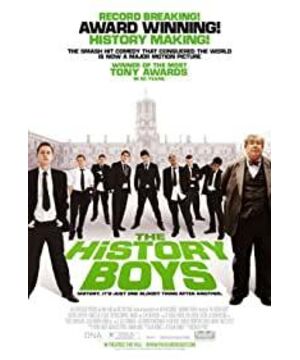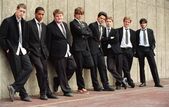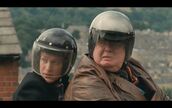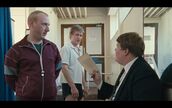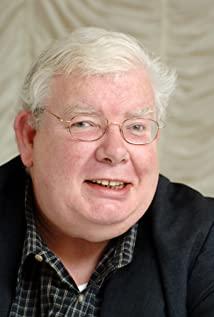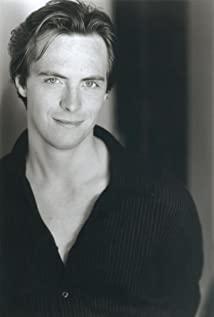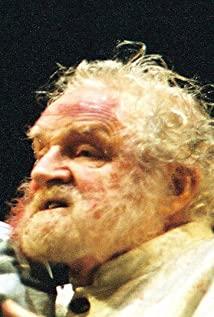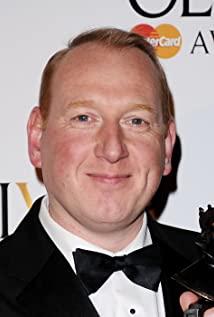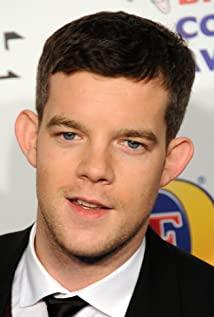Re:
[extract from Act One of The History Boys by Alan Bennett]
Classroom
T : So we arrive eventually at the less-than-startling discovery that so far as the poets are concerned, the First World War gets the thumbs-down. We have the mountains of dead on both sides, right... "hecatombs", as you all seem to have read somewhere....Anybody know what it means?
S1 : "Great public sacrifice of many victims, originally of oxen."
S2 : Which, sir, since Wilfred Owen says men were dying like cattle, is the appropriate word.
T : True, but no need to look so smug about it. What else? Come on, tick them all off.
S3 : Trench warfare .
S4 : Barrenness of the strategy.....[different suggestions from students]
S5 : Collapse of Weiner Republic. Internal disorder. And... The Rise of Hitler !!
T : So the overall conclusion is that the origins of the Second World War lie in the unsatisfactory outcome of the First.
S5 : (doubtfully) Yes . (with more certainty) Yes. (Others students noted).
T : First class. Bristol welcomes you with open arms. Manchester longs to have you. You can walk into Leeds. But I am a fellow of Magdalen College, Oxford, and I have just read seventy papers saying the same thing and I am asleep....
S6 : But it's all true.
T : What has that got to do with it? What has that got to do with anything? Let's go back to 1914 and I'll put you a different case. Try this for size.
Germany does not want war and if there is an arms race it is Britain who is leading it. Though there's no reason why we should want war. Nothing in it for us. Better stand back and let Germany and Russia fight it out while we take the imperial pickings.
These are the facts. Why do we not care to acknowledge them? The cattle, the body count. We still don't like to admit the war was even partly our fault because so many of our people died. A photograph on very mantelpiece. And all this mourning has veiled the truth. It's not so much lest we forget, as lest we remember. Because you should realize that so far as the Cenotaph and the Last Post and all that stuff is concerned, there's no better way of forgetting something than by commemorating it. And S2.
S2 : Sir?
T : You were the one who was morally superior about Haig. (see bio of Haig)
S2 : Passchendaele. The Somme. He was a butcher, sir.
T : Yes, but at least he delivered the goods. No, no, the real enemy to Haig's subsequent reputation was the Unknown Solider. If Haig had had any sense he'd have had him disinterred and shot all over again for giving comfort to the enemy.
S4 : So what about the poets, then?
T : What about them? If you read what they actually say as distinct from what they wirte, most of them seem to have enjoyed the war. Siegfried Sassoon was a good officer. Saint Wilfred Owen couldn't wait to get back to his company. Both of them Surprisingly bloodthirsty. Poetry is good up to a point. Adds flavour.
S2 : It's the foreskin again, isn't it? Bit of garnish.
T : (ignoring this) But if you want to relate the politics to the war, forget Wilfred Owen and try Kipling : ...
S7 : Thanks a lot.
T : "If any question why we died, Tell them because our fathers lied ." In other words...
S8 : Oh, no sir. With respect, can I stop you ? No, with a poem or any work of art we can never say "in other words". If it is a work of art there are no other words.
S4 : Yes, sir. That's why it is a work of art in the first place. You can't look at a Rembrandt and say "in other words", can you, sir?
S9 : So what's the verdict then, sir? What do I write down?
T : You can write down, S9, that "I must not write down every word that teacher says."
You can also write down that the First World War was a mistake. It was not a tragedy. And as for the truth, S6, which you were worrying about : truth is no more at issue in an examination than thirst at a wine-tasting or fashion at a striptease.
S2 : Do you really believe that, sir, or are you just trying to make us think?
S6 : You can't explain away the poetry, sir.
S4 : No sir. Art wins in the end. ..
View more about The History Boys reviews


